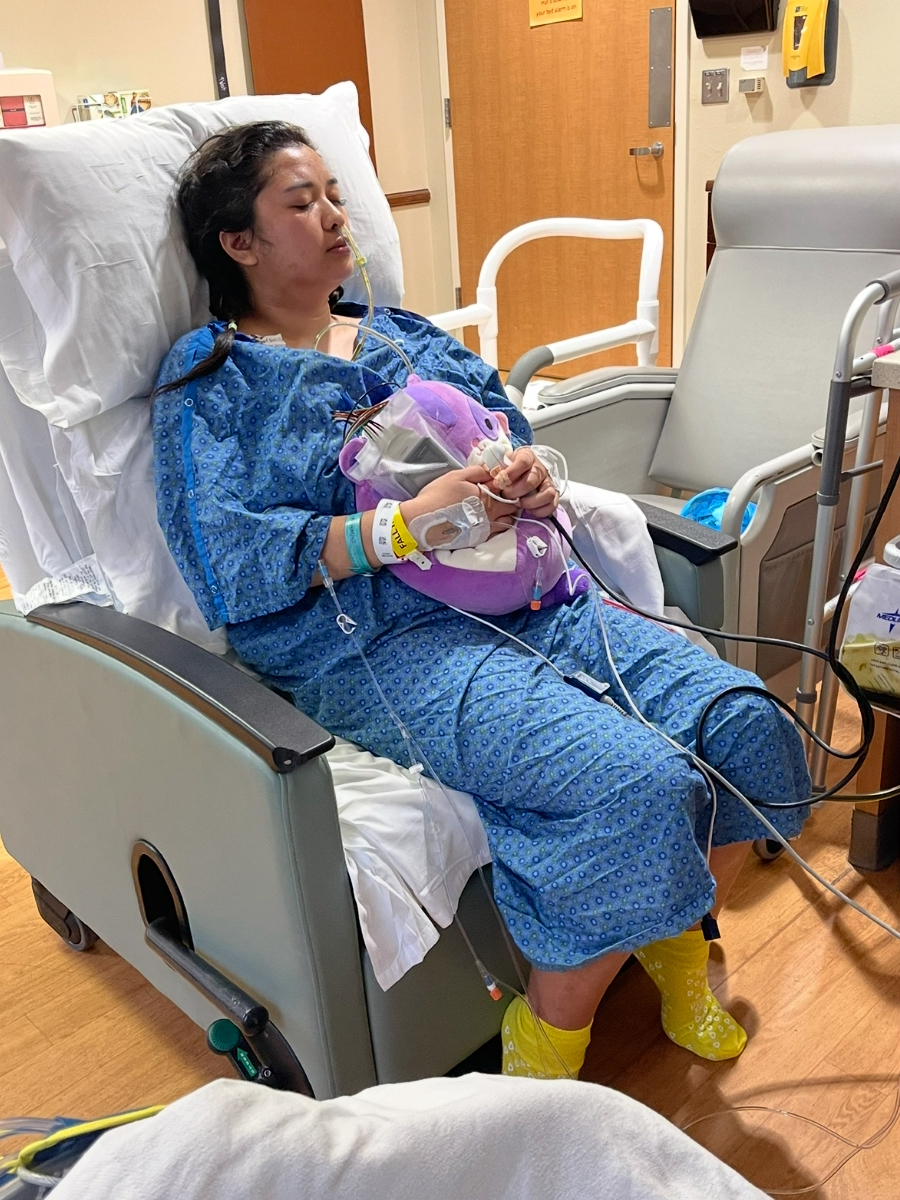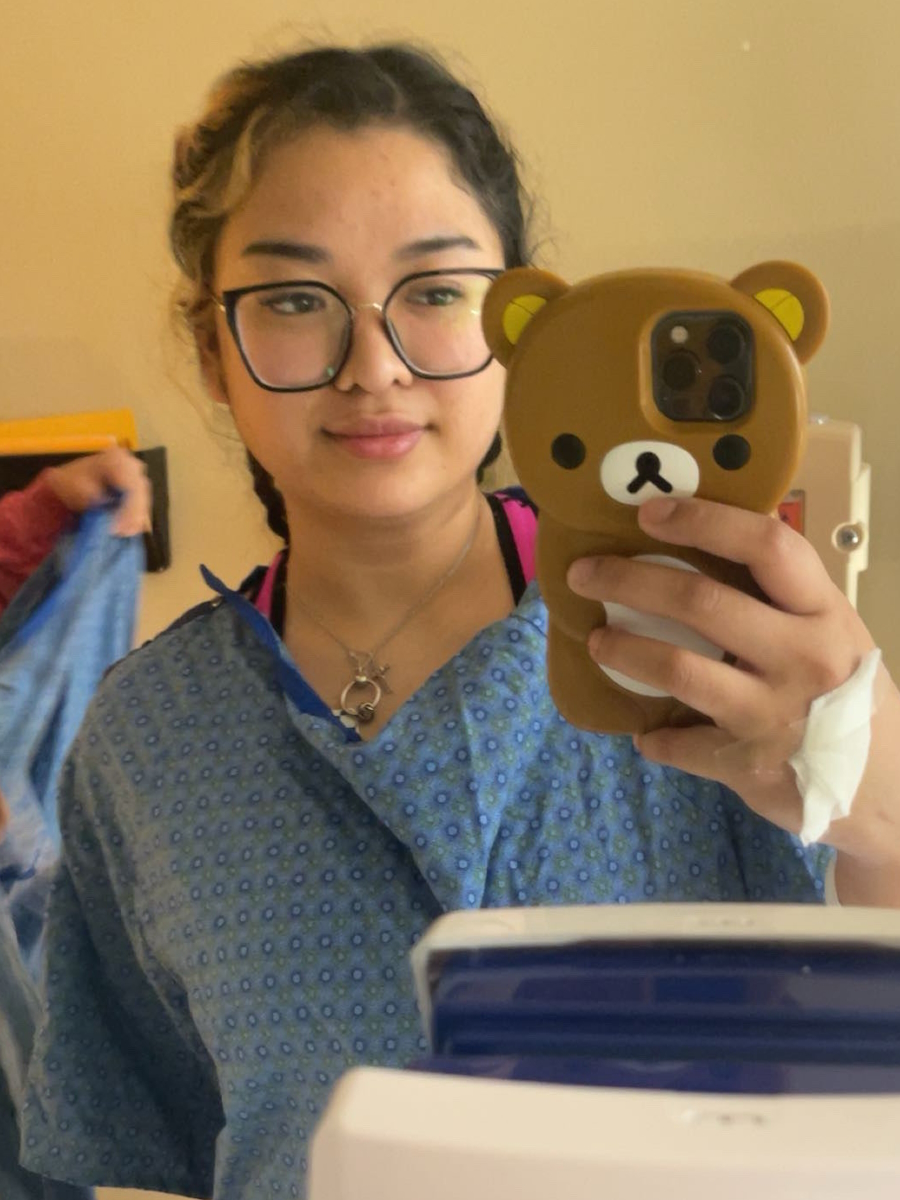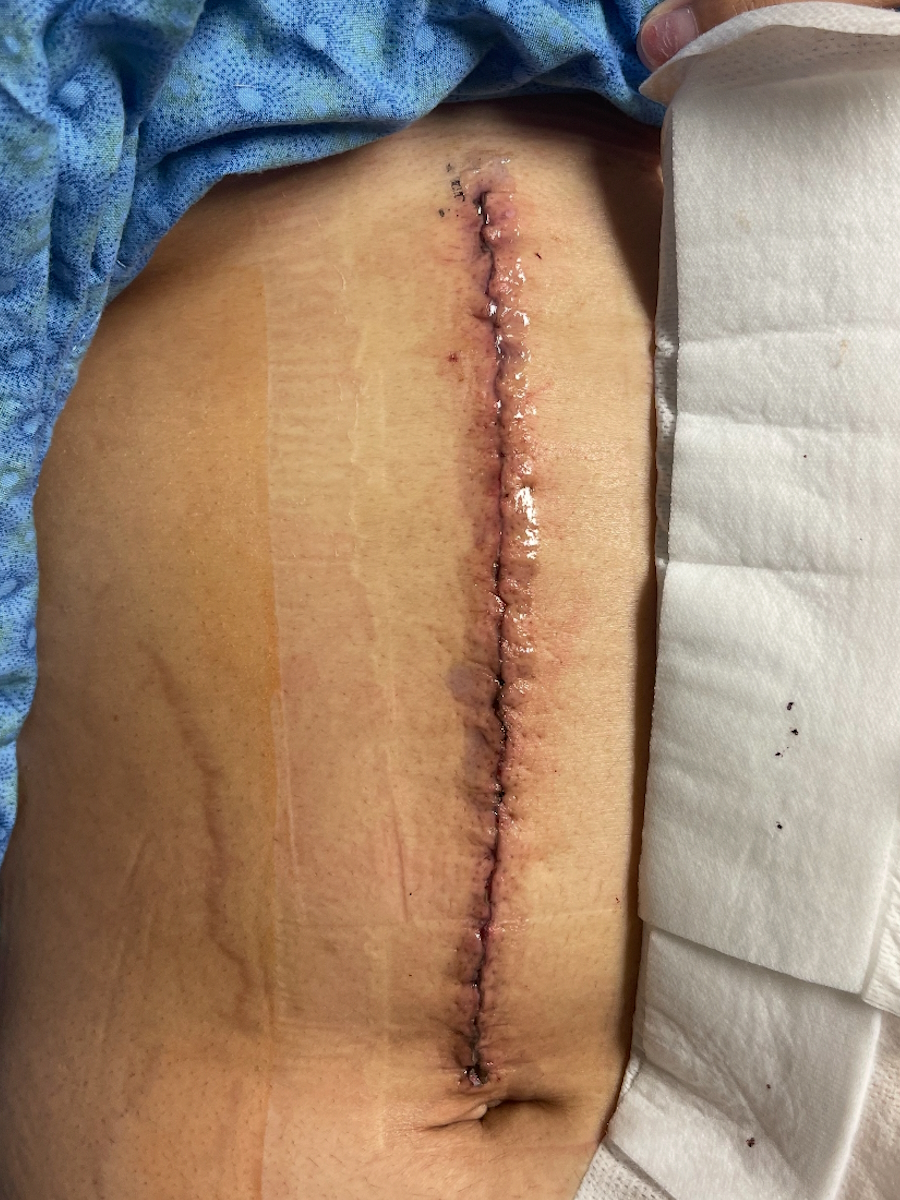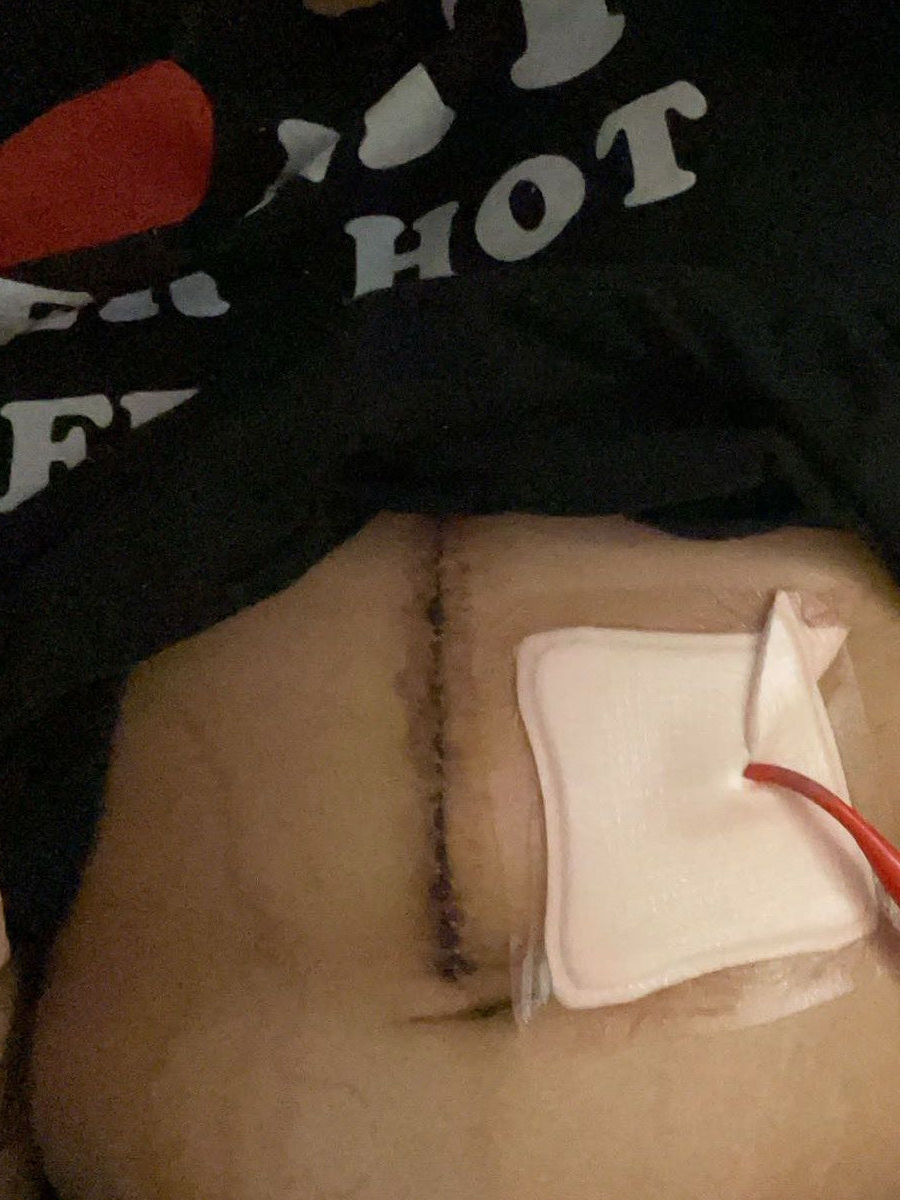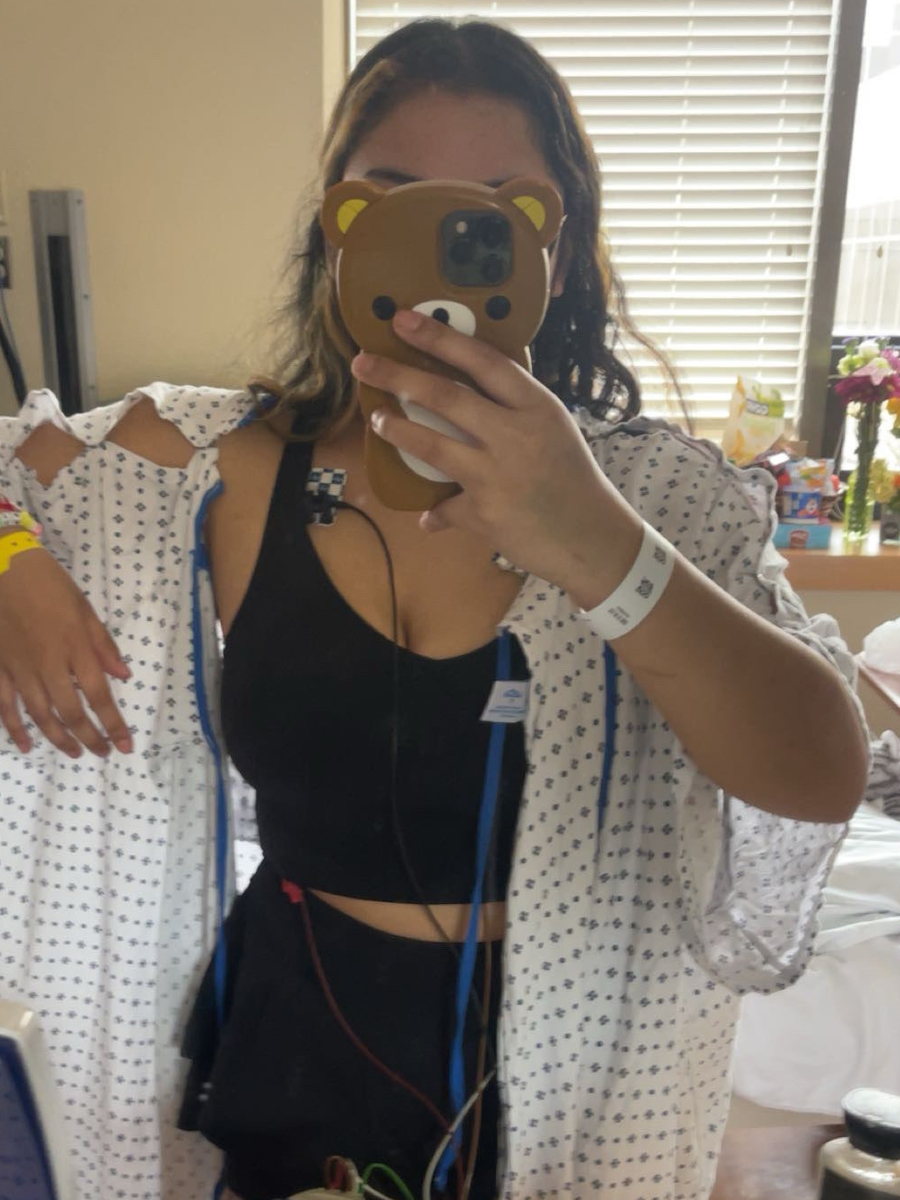How Speaking Up Led to Drea’s Rare Cancer Diagnosis of a Gastric Neuroendocrine Tumor (gNET)
Drea was 23 and in her third year of college when her world shifted. What started as dizzy spells during yoga spiraled into frequent fainting, crushing fatigue, and a deep gut feeling that something wasn’t right. Although she voiced her concerns again and again, doctors attributed her symptoms to anemia, her weight, her diet, and even her anxiety. As a young woman, overweight and navigating the chaos of college life, Drea felt unheard, unseen, and constantly dismissed. All of this would change with a gastric neuroendocrine tumor diagnosis—but first she would have to go through more symptoms.
Interviewed by: Nikki Murphy
Edited by: Katrina Villareal
It wasn’t until Drea’s hemoglobin dropped to a dangerously low level and she landed in the emergency room that the urgency finally clicked for the medical team. After an endoscopy and a CT scan, doctors discovered a gastric neuroendocrine tumor (gNET), a rare type of stomach cancer that had been silently bleeding for months. Her symptoms finally made sense, but the diagnosis shattered her. She spiraled, felt disconnected from her identity, and grieved the life she thought she’d have.

Drea’s authenticity shines as she reflects on the isolation of waiting for answers, the trauma of not feeling heard by medical professionals, and the emotional toll of watching her friends graduate while she remained hospitalized. Therapy and support from loved ones became lifelines. Her experience underscores the critical importance of self-advocacy, a voice she had to amplify even when others told her nothing was wrong.
The diagnosis wasn’t the aggressive gastric cancer doctors feared, but a well-differentiated grade 1 gastric neuroendocrine tumor. Still, it meant a life-changing surgery: a total gastrectomy with a Roux-en-Y reconstruction. (Editor’s Note: A total gastrectomy involves removing the whole stomach. A Roux-en-Y reconstruction involves rejoining the esophagus and the small intestine.)
Drea, a self-described foodie, mourned the loss of her ability to eat freely. The physical recovery was brutal, but the emotional healing ran even deeper. Eating remains a balancing act. Social events require planning, but she’s learned to embrace a new kind of normal — one that’s grounded in self-awareness, patience, and gratitude. She surrounds herself with people who love her exactly as she is and is slowly reclaiming parts of herself that were buried under fear and uncertainty.
Drea’s story is a powerful reminder that young people can get serious diagnoses and that symptoms, like unexplained fatigue, fainting, or persistent anemia, shouldn’t be ignored. Her honesty is refreshing, her strength palpable, and her advocacy deeply empowering.
Watch Drea’s full interview to find out more about her story:
- What it’s like to be young, sick, and told, “You’re too healthy for cancer”
- How fainting during a yoga class became the first clue that something serious was happening
- How a missed diagnosis almost cost Drea everything, including her life
- The moment she realized no one was going to advocate for her, except herself
- What losing Drea’s entire stomach meant for her daily life and mental health
- Name: Drea E.
- Age at Diagnosis:
- 23
- Diagnosis:
- Gastric Neuroendocrine Tumor (gNET)
- Staging:
- Stage 3
- Grade:
- Grade 1
- Symptoms:
- Fainting spells
- Fatigue
- Dizziness
- Anemia
- Shortness of breath
- Absence of menstruation
- Unexplained weight loss
- Night sweats
- Treatment:
- Surgery: total gastrectomy (complete removal of the stomach) with a Roux-en-Y reconstruction
This interview has been edited for clarity and length. This is not medical advice. Please consult with your healthcare provider to make informed treatment decisions.
The views and opinions expressed in this interview do not necessarily reflect those of The Patient Story.

Inspired by Drea's story?
Share your story, too!
More Neuroendocrine Tumor Stories
Regina J., Lung Neuroendocrine Tumor
Symptoms: Wheezing, back pain, coughing that sometimes produced blood
Treatment: Surgery (partial lung resection)
...
Tabbie V., Pancreatic Neuroendocrine Tumor (pNET)
Symptoms: Abdominal pain, unusual organ "inflammation" feeling when walking, fatigue
Treatments: Chemotherapy (oral and IV), surgeries (Whipple procedure or pancreaticoduodenectomy, liver resection or partial hepatectomy)
...
Hayley O., Pancreatic Neuroendocrine Tumor (pNET)
Symptoms: Severe right-sided pelvic pain, nausea, diarrhea
Treatment: Surgery (pancreaticoduodenectomy or Whipple procedure)
...
Drea E., Gastric Neuroendocrine Tumor (gNET), Stage 3, Grade 1
Symptoms: Fainting spells, fatigue, dizziness, anemia, shortness of breath, absence of menstruation, unexplained weight loss, night sweats
Treatment: Surgery (total gastrectomy with a Roux-en-Y reconstruction)
...

